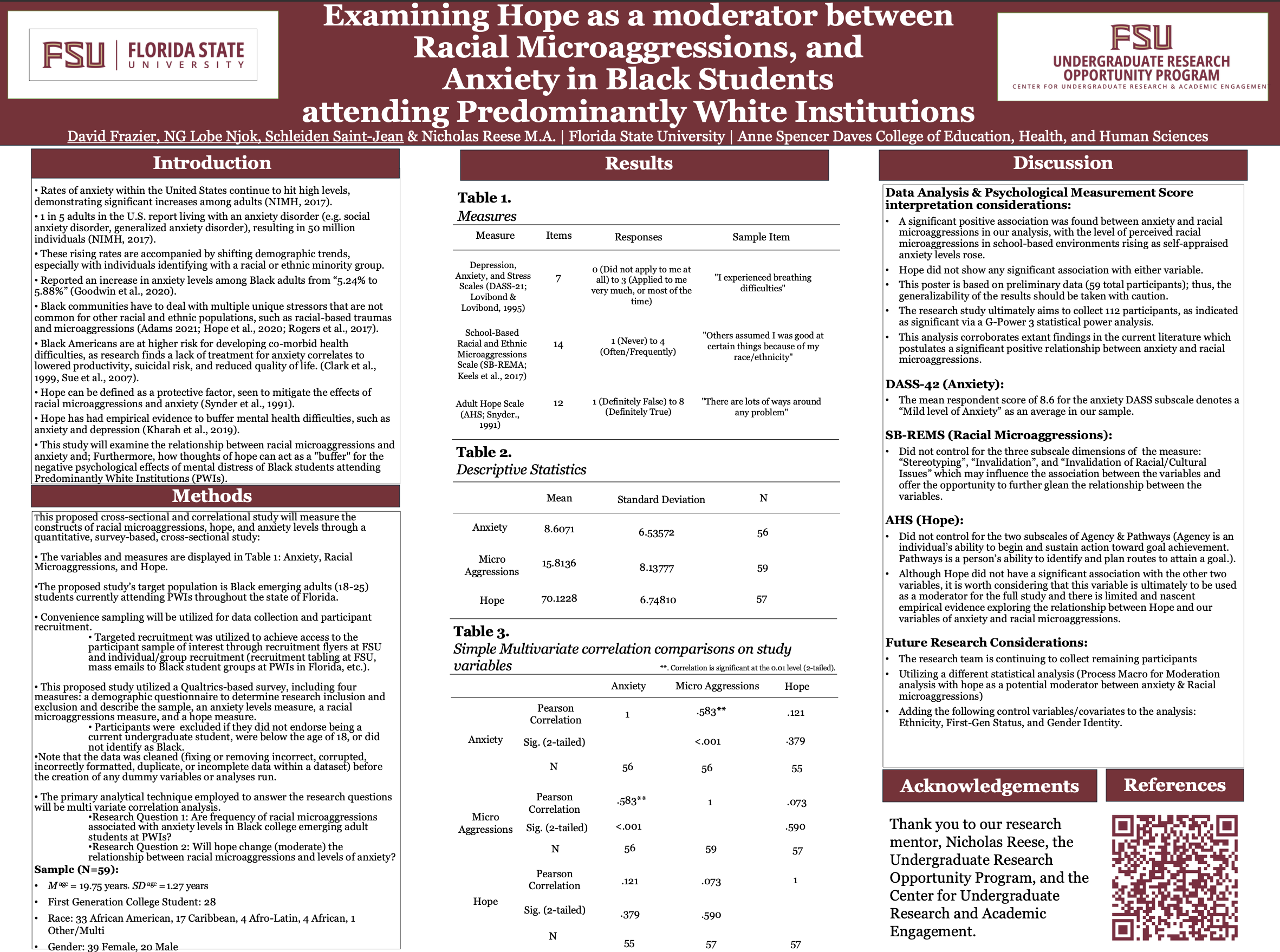Research Symposium
25th annual Undergraduate Research Symposium, April 1, 2025
Nigel-Ginola "NG" Njok Poster Session 3: 1:45 pm - 2:45 pm / Poster #67

BIO
Hello! I am Nigel-Ginola "NG" Njok, a first-year Behavioral Neuroscience major from Palm Coast, FL. Throughout my time at Florida State, I aim to get involved in research relating to the underlying biological mechanisms for psychological and mental disorders. More specifically, how to better improve and develop tailored mental health treatments for individuals. Following my undergraduate studies, I plan attend medical school to become a psychiatrist or attend a PhD program for clinical neuroscience. Outside of academia, I enjoy playing the violin, thrifting, and listening to soul/R&B music.
Examining Hope as a moderator between Racial Microaggressions, and Anxiety in Black Students attending Predominantly White Institutions
Authors: Nigel-Ginola "NG" Njok, Nicholas ReeseStudent Major: Behavioral Neuroscience
Mentor: Nicholas Reese
Mentor's Department: Counseling Psychology and School Psychology Mentor's College: Anne Spencer Daves College of Education, Health, and Human Sciences Co-Presenters: David Frazier, Schleiden Saint-Jean
Abstract
This study examines the relationship between racial microaggressions and anxiety levels among Black students attending Predominantly White Institutions (PWIs), with hope investigated as a potential moderating factor. The research addresses critical gaps in anxiety research for Black populations, particularly given the increasing prevalence of anxiety disorders and the unique stressors faced by Black college students. Using Racial Battle Fatigue theory and Snyder's Hope Theory as theoretical frameworks, the study employs a correlational cross-sectional design to investigate two primary research questions: (1) whether the frequency of racial microaggressions is associated with anxiety levels in Black college emerging adult students at PWIs, and (2) if hope moderates the relationship between racial microaggressions and anxiety levels. The study controls for ethnicity and first-generation status, as these variables have been shown to interconnect with both racial microaggressions and anxiety in Black populations. This research aims to contribute to the development of culturally tailored interventions and expand the empirical understanding of anxiety in Black college students, addressing a significant gap in mental health literature and practice. The findings have important implications for Health Service Psychology practitioners working with Black college students and could inform more effective, culturally-sensitive treatment approaches.
Keywords: Psychology, Racial Microaggressions, Anxiety, Mental Afflictions

